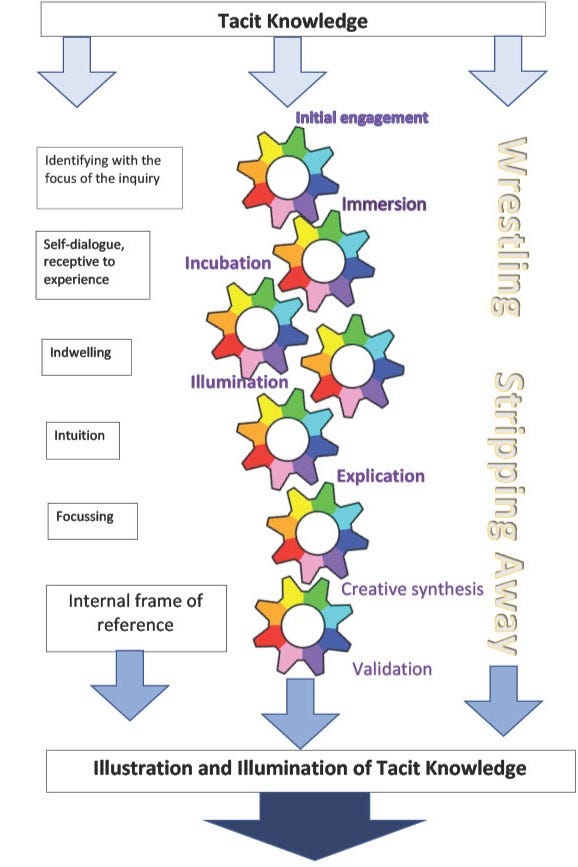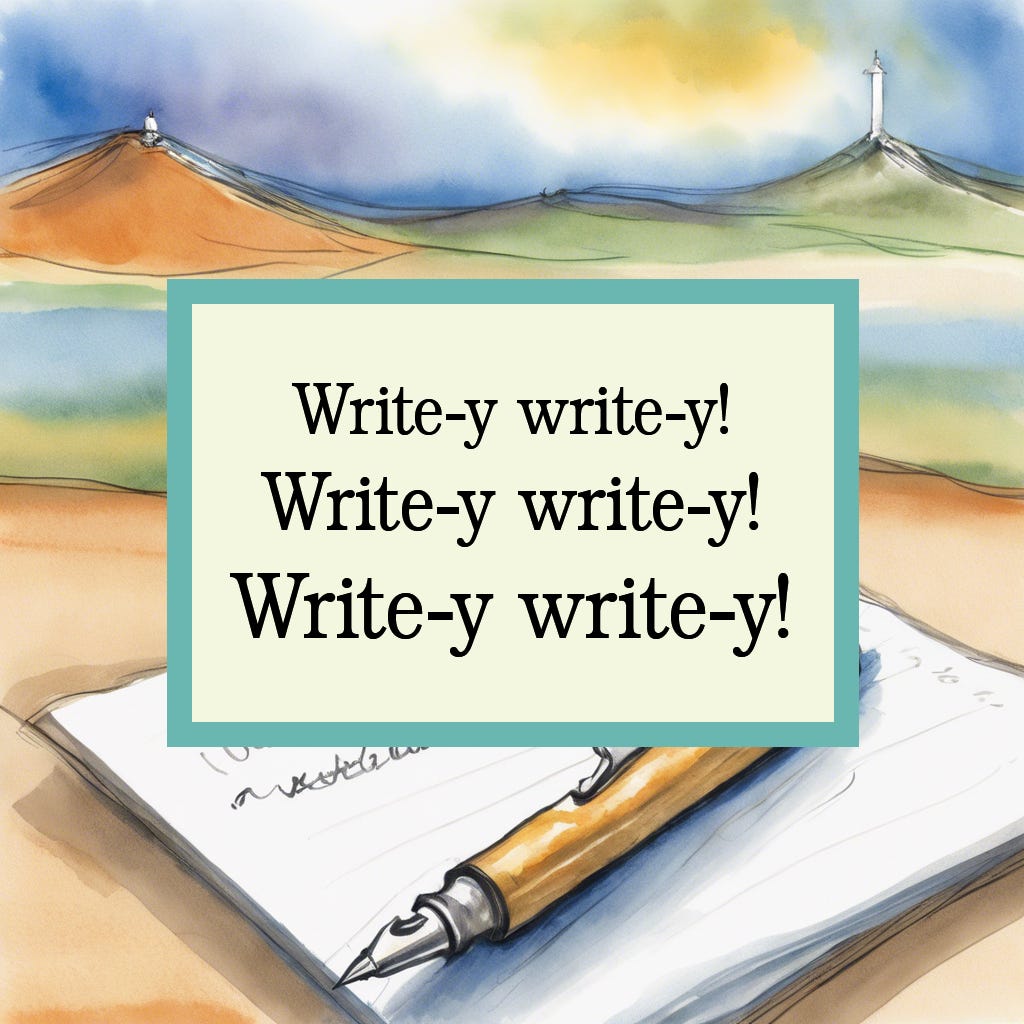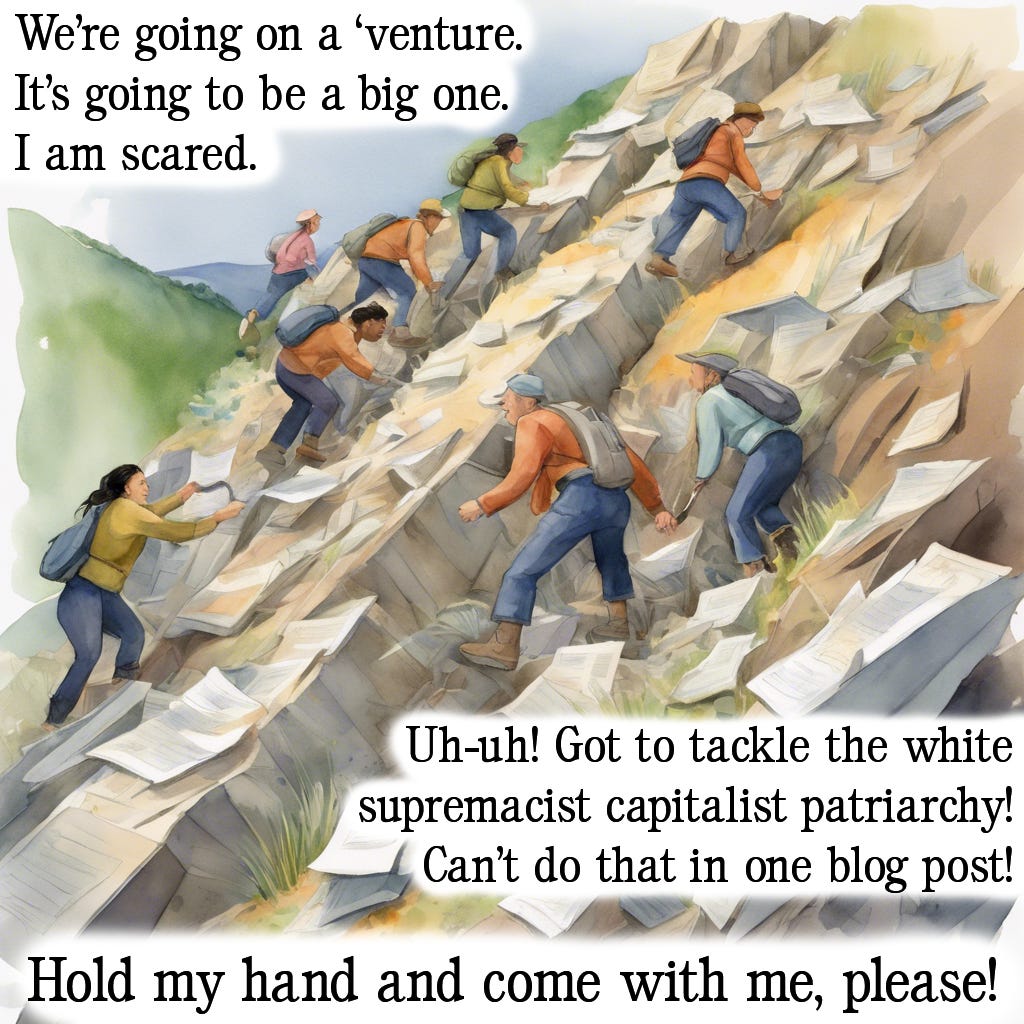Moving forward, breaking down
Contents
Fiction: Vulnerability; coming apart, coming together
I do know my M/otherTongue, and now I’m going to find the words for it
Introduction
Welcome to a new big adventure! You Do Know is moving into the realm of the unknown. I may change its title to We Do Know to mark the fact that I am now growing beyond my doctoral research, and beyond focussing on the clinical model of Theraplay as the foundation of these posts. My passions are now leading me to want to work out how tacit maternal knowing can change the world.
I don’t limit myself to small ambitions!
I centre attachment theory as the lens through which I see the world, and that world consists of dependent/interdependent relationships. Therefore, if I approach each caring relationship that comes to me with a generous intention to enable the other to flourish, I change their world. If each of us approach things in this way, we can all become part of the ocean of change I wrote about in Time and healing wait for no man, but tacit maternal knowing might just go with the flow. We are a community of practice if we join together (formally or informally) in this way of being professional people who care. This feels both big and small, scary and exciting, progressive and involves me taking my thinking apart again.
I will continue to construct the posts in the same way. I allow myself to be drawn to a piece of fiction that has emerged in response to the questions I’ve been setting myself. The following fiction comes from The Mad Man in the Attic, where I set myself the challenge of trying to make sense of my relationship to masculinity. This piece comes after House clearance where Val finds a key and a picture that looks like her mother, but before The end and a beginning.
Fiction: Vulnerability; coming apart, coming together
It was the first time Val had let Graham drive her. It was the first time she’d really allowed herself to not just talk about being vulnerable, but to be vulnerable. It had taken time for the dusty ghosts stirred up by the letters and the shed to settle. She’d spent a lot of time staring at the picture after she’d got home. Different place, different part of her maybe, but it didn’t look so much like her mother now. The more she looked, the more she questioned and the less she could feel sure of. The perpetual not knowing absorbed her energy, kept her wondering about things she still had no way to know about. Who was the artist? Did her biological father paint it? And the key, what was that about?
The preoccupation of not knowing meant she’d walked around the house inside her head multiple times, re-exploring each room, trying to work out what the key might be for. There had been a door just outside the bedroom with the bay window. A door that occupied the space between the room and the deep gash that was the staircase. She’d assumed it was the airing cupboard and so had never looked at it. Did that have a lock on it? She had no idea, and the more she interrogated her memory, the less sure she was of what was ‘true’ and what she was inventing to try to sooth her confusion.
She was unsettled enough to not want to go back to the house alone, and to feel that she couldn’t be responsible for driving safely when her head felt so full and distracted. Graham drove her but agreed to stay in a hotel close by while she again slept in the rooms that seemed to hold a key to something she needed to know. She wanted to immerse herself in whatever it was that the house was trying to tell her.
I do know my M/otherTongue, and now I’m going to find the words for it
So this is the new adventure in exploring tacit maternal knowing. That little challenge I’ve set myself to change the world! Or at least changing the way some of us as professionals who care have a mindset, a philosophy, an ethical commitment to our work, and a theory to underpin that, whether that work be as therapists, educators, researchers, or managers.
Tacit maternal knowing is quite a clunky term to keep using, verbally and in typing. So, as part of my digestive process in wondering how to ‘get it out there in the world’, I have started to adopt the term M/otherTongue. In fact, more than adopting it, I have applied for it to be a trademark!
This isn’t about buying into the manstream. I take Lorde’s (2018) advice seriously. I am determined to find other tools in dismantling a master’s house that is, in my opinion, getting in the way of tacit maternal knowing being actively used in our practices. I see exploring whether M/otherTongue can be trademarked more as a way of ensuring that the master's tools are put firmly away in a cupboard so they can’t be used against this endeavour of seeing how tacit maternal knowing can transform our relationship with our work and so transform the lives of the people we work with.
In my writing about tacit maternal knowing in these blog posts, and in conversations with others, it seems to me that this isn’t just a personal passion but touches many of us. It seems to me it touches not just women, but also men and people of other genders who work from this same place of cherishing dependence/interdependence as a stance in communicating with others. It seems to me it touches those who experience being Othered, of being made to feel less than, or weird, or excluded, or mad, or diagnosably ‘unwell’ (thus rendering distress individual and a personal responsibility, not the result of insults from the world). It seems to me I uncovered something that could be a way of connecting across divides and that enables an ongoing ebb and flow of growth that leads to the flourishing of humankind. But if it is to be something usable, I do need to create more of a theory to help us share and apply the concept.
M/otherTongue as a term captures many aspects of the world view that has been growing within me, initially through the doctoral research, then through this ongoing writing. M/otherTongue is about elaborating mothering as a theoretical position that can be used by anyone if it is sufficiently theorised. It is about ensuring we challenge Othering by M/othering (see From othering to m/othering), through the use of our power in the service of the other and by drawing on what mothers do (Stadlen 2004) and seeing that as powerful, legitimate knowledge.
It sets equality, diversity, and inclusion at the heart of what drives our action. It is about embodied communication, people's connection at a fundamental level through the first language we share, that which is inherent in our lived experiences of being conceived, gestated, birthed, and fed as a physical manifestation of relationship. It is, I believe, this coming back to body and coming back to earth that will provide the firm foundation for a great adventure into yet another unknown. It is about moving beyond neoliberalism, to use a term I’ve just learnt! And to use a phrase I have known for a while, it is about challenging the white supremacist, capitalist, patriarchy (hooks, 2015).
That feels like such a big claim and a big project, and I feel very vulnerable in committing it to words and putting it out there in the world.
But what if I am right? (A hard place to hold as that white supremacist, capitalist, patriarchy has been quite vicious in telling me all my life that of course I can’t be right because I’m a woman and so am less than a man.)
I believe this thing, this tacit maternal knowing, M/otherTongue, is a piece in the jigsaw puzzle of things humans can do to reclaim a world. A world that is working towards respect for each other and the land. A world that supports communities that strive for peace, and for each of us enriching those around us. Elaborating on this, working out how it might apply to our professional roles, feels like it will take these ideas beyond the known, beyond my doctoral research and beyond applying them to the core concepts of Theraplay.
But how am I going to do this wider, deeper exploration of our M/otherTongue? I’ve lost the structures that have driven the venture up to now — explaining my research and elaborating on the core concepts of Theraplay. Part of the vulnerability I feel is that I don’t know where this thing is going to go.
In last month’s post, I floated the idea of Joe going to do his Postgraduate Diploma in Child and Adolescent Psychotherapeutic Counselling at Cambridge. I did start to write some fiction around this and found that in the fiction, Val became dissociated, discovered in the street by Joe, unable to speak or move, having split up from Graham. My reflection on that led me to think that I need more time before I can really write about a fully integrated masculine function. To try to do this too early freezes the powerful tacit maternal knower within me that is represented by Val. Whilst learning more about her power, she is still vulnerable to feeling like all she can do is shut down when masculinity moves into the realm of care, no matter how maternal that man may be (remember that Joe is now single-handedly raising his two children). This project is growing out of, and building on, what has gone before. It is not replacing it. So there is no new fiction yet, just a different pondering on the fiction that is there.
On not being able to write new fiction, and being drawn back to the novel The Mad Man in the Attic, written in NaNoWriMo 2023, I found my starting point for the new venture. I have been seeking to integrate my sense of the masculine and my sense of the maternal. The fiction that came forward for this month reminds me that although I am championing tacit maternal knowing, there are times when that can be more creative if it can be contained, shaped, and supported by a male who can give it space; an injured male who is feeling into his strength that comes from his own vulnerability.
I don’t know what I will find, but I do know how to find it. I am going to carry on doing what I’ve been doing up to now; write a novel in November as part of NaNoWriMo to make the creative space to explore these issues, and then share my reflections in these posts. In my doctorate (Peacock, 2023b), I drew up a visual representation of the heuristic inquiry process:
Undertaking the process as part of doctoral study ‘legitimised’ this heuristic, self-search inquiry. I’ve had one peer-reviewed journal article published based on that doctorate (Peacock, 2023a). These blog posts are not always seen as ‘proper’ writing in the eyes of academia, yet I have chosen to explore M/otherTongue here. I seek to democratise the sharing of knowledge by cutting out the need for my writing to be seen as profitable by an established publisher, or for me to modify my views to fit in peer-reviewed academic journals. So although I am going to carry on doing what I’ve been doing all these months, I am going to seek to ‘legitimise’ it by asking for ethical clearance for it as a research project.
Why, if I am going to carry on doing what I’ve been doing for the past months, do I feel the need to get ethical clearance and call this ‘research’? Similar to the rationale for seeking to make M/otherTongue a trademark, I am not wanting to use the master's tools, but acknowledge that the master's tools are there and they may have some purpose — this is an integration of masculine and maternal, not excluding one from the other. Getting ethics clearance is a bit of a challenge to such manstreams. What changes my writing from my ‘leisure activity’ into ‘proper research’?
And you, each of you. How does the word ‘research’ impact on you? I am aware of feeling uncomfortable in putting the term ‘research’ on my monthly musings. I don’t want you to go to a headspace where ‘research’ is a big thing that other people do that excludes you as tacit maternal knowers, as native speakers of the M/otherTongue.
If you have enjoyed what you’ve read so far, you will carry on enjoying what is going to happen next. It will be the same. I am hoping that by having it ‘legitimised’ by a well-known organisation, it may attract other readers who are less comfortable with research in this style, but who may be people that we wish to influence in terms of transforming their practice as well as to recruit them to support us as we transform our own practice.
I am aware I am in a privileged position. I have links to a university and although this writing is not within my paid role at that university, I do have access to an ethics process to lay this research proposal out and see what others think. I know that many of you are doing high quality research day in, day out. Using your power in the service of others is grassroots research, as you are always working out what is going on and what is the best way to communicate your insight — but you may not have the opportunity to have your work seen as high quality academic knowledge. I hope that sharing the journey of applying for ethics clearance and seeing what the result may be can help lend weight to your knowledge generation, and maybe knowledge sharing.
As part of my ethics application, I am going to suggest ways that I can invite you to be more actively involved in this knowledge generation process, should you wish to do so. This fits with Sultan’s (2019) development of Moustakas’ (1990) heuristic inquiry method, where the connection with others is more explicit. Watch this space to see how that grows and develops.
To summarise in the style of We’re going on a bear hunt…
With thanks to Michael Rosen for both We’re going on a bear hunt and the many other ways he champions the joy of arts and language for children (whatever the size of their bodies or their chronological age).
Bibliography
hooks, bell. (2015). Ain’t I a woman: Black women and feminism. Routledge.
Lorde, A. (2018). The Master’s Tools Will Never Dismantle the Master’s House. https://www.overdrive.com/search?q=8D57C658-66D4-401C-891E-9BC385F65341
Moustakas, C. E. (1990). Heuristic research: Design, methodology, and applications. SAGE.
Peacock, F. (2023a). A Heuristic Inquiry into my use of Theraplay® with children experiencing the impact of relational and developmental trauma. European Journal for Qualitative Research in Psychotherapy, 13.
Peacock, F. (2023b). What did I do? I don’t know. Generating fiction to examine the tacit maternal knowing I bring to my Theraplay® practice with children who are experiencing relational and developmental trauma. (Doctoral thesis) [Doctor of Education, University of Cambridge]. https://doi.org/10.17863/CAM.80181
Stadlen, N. (2004). What mothers do: Especially when it looks like nothing. Piatkus.
Sultan, N. (2019). Heuristic inquiry: Researching human experience holistically. SAGE.
Images for We’re going on a ‘venture were generated with DreamStudio.









